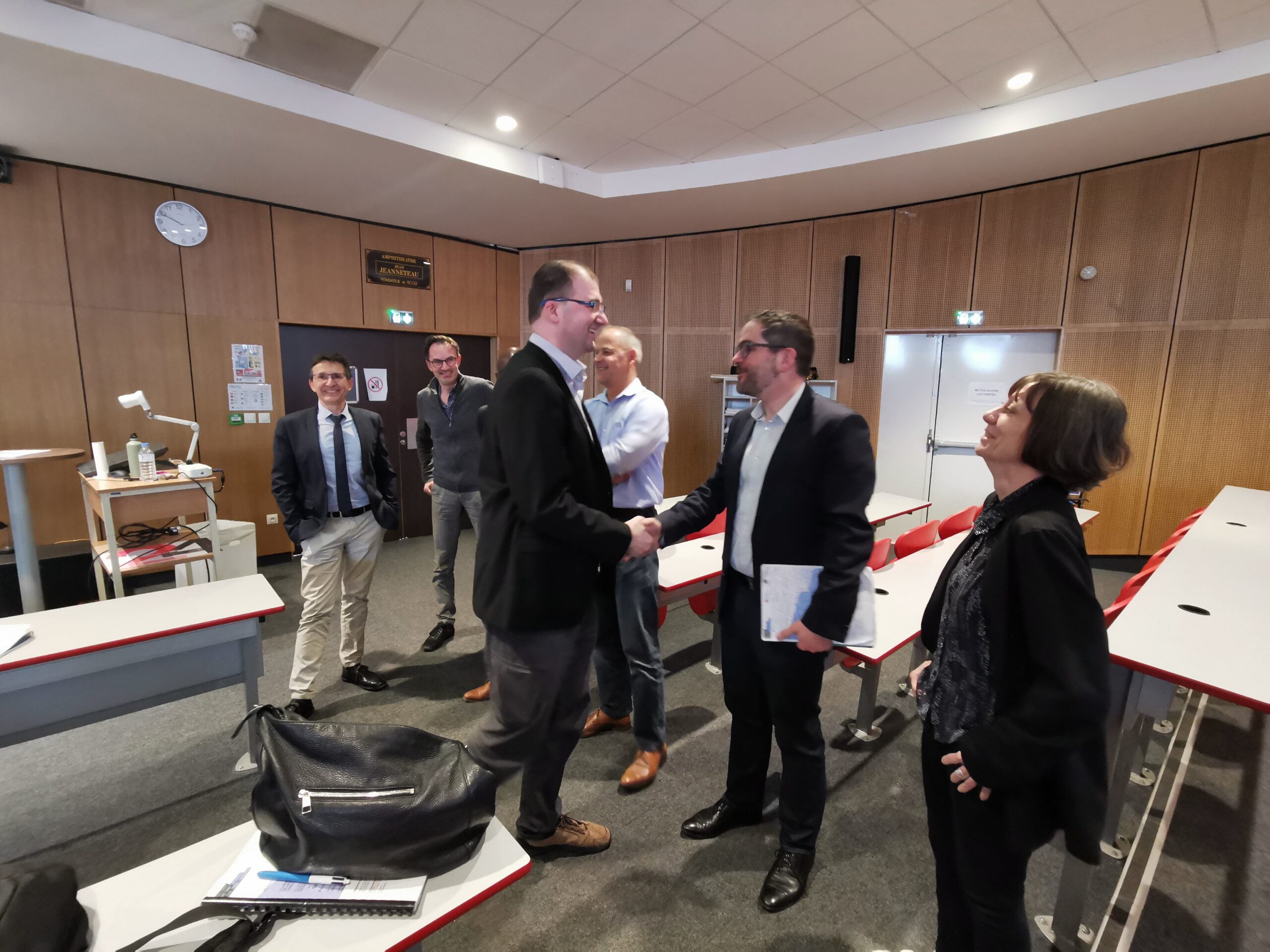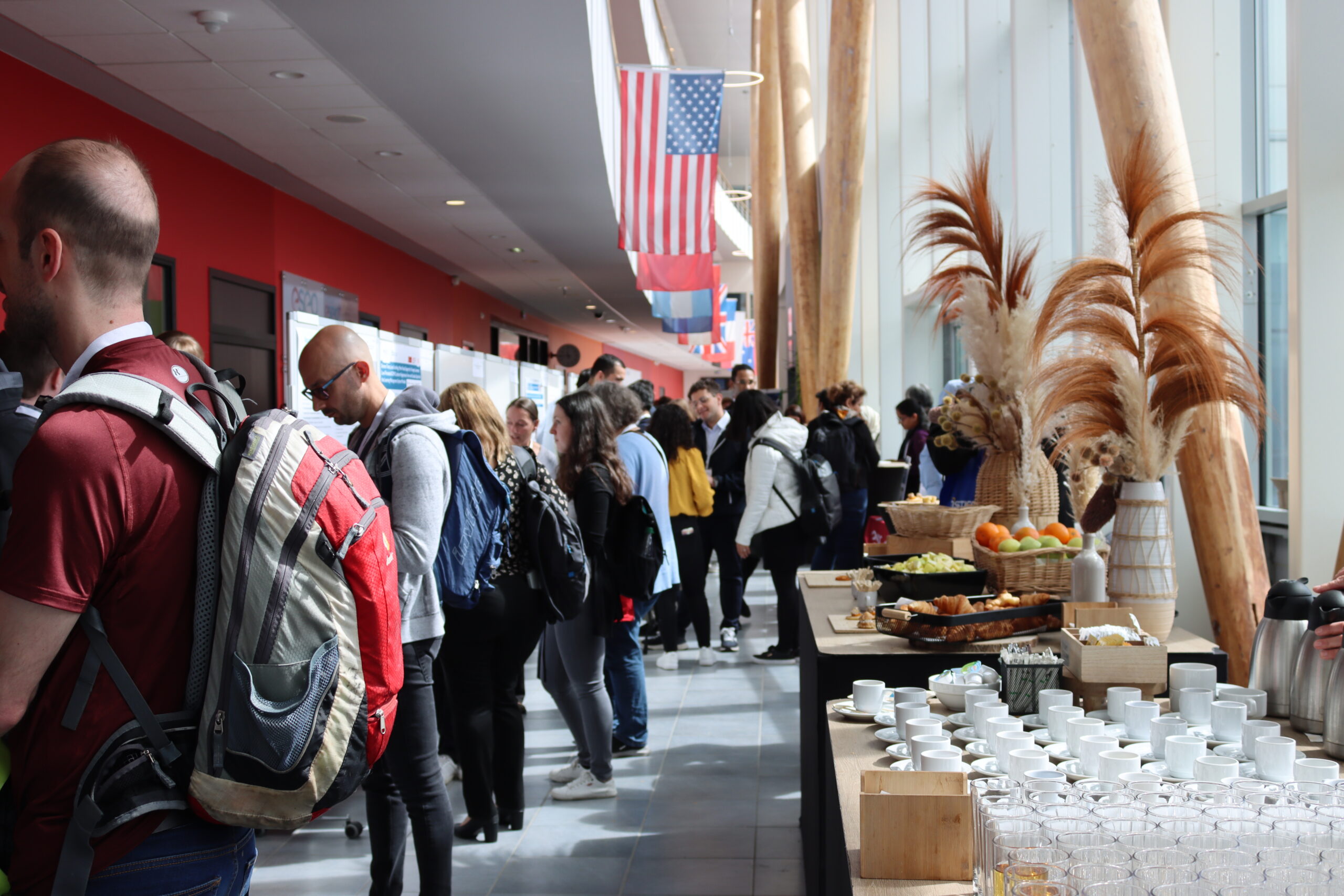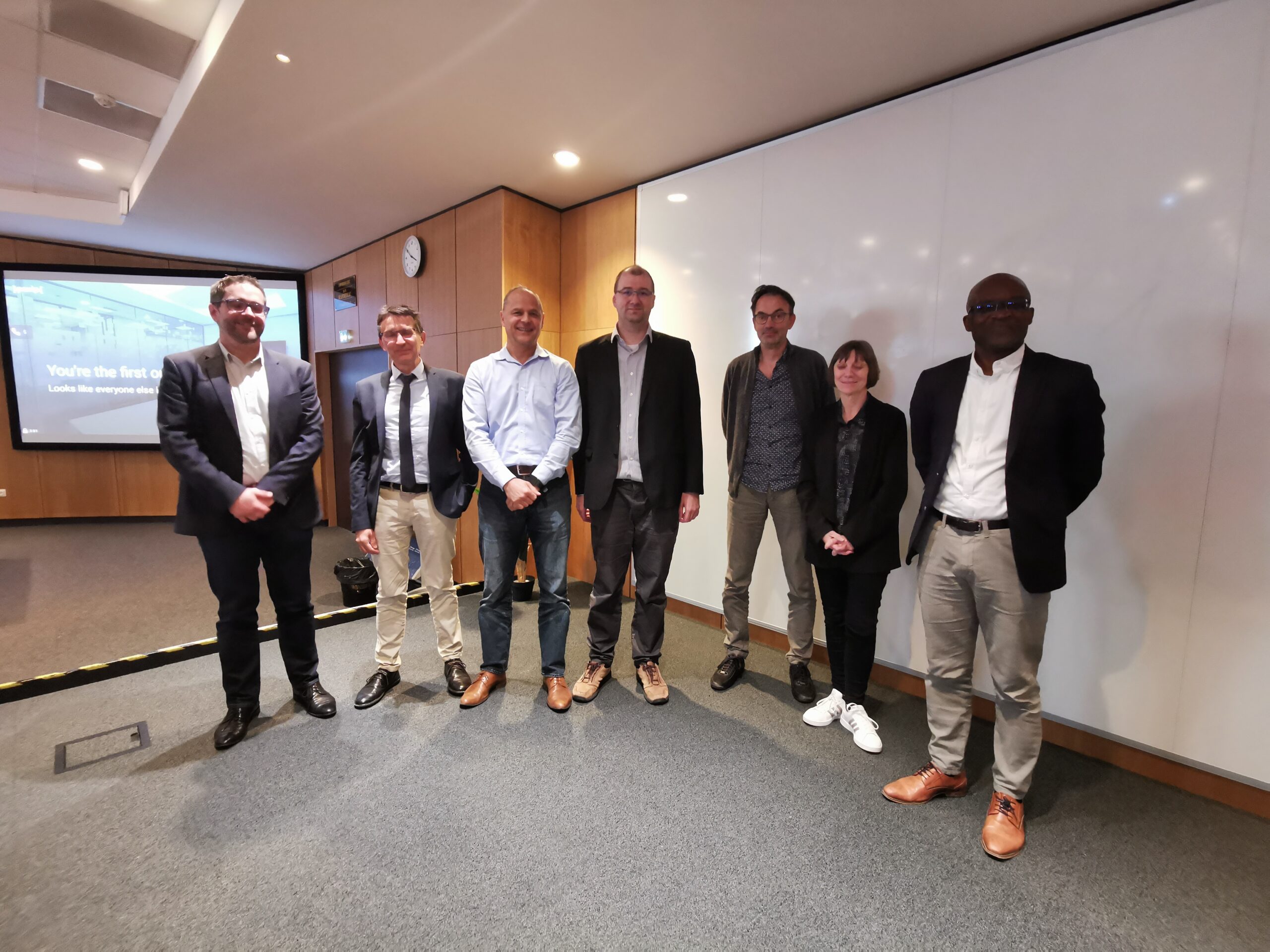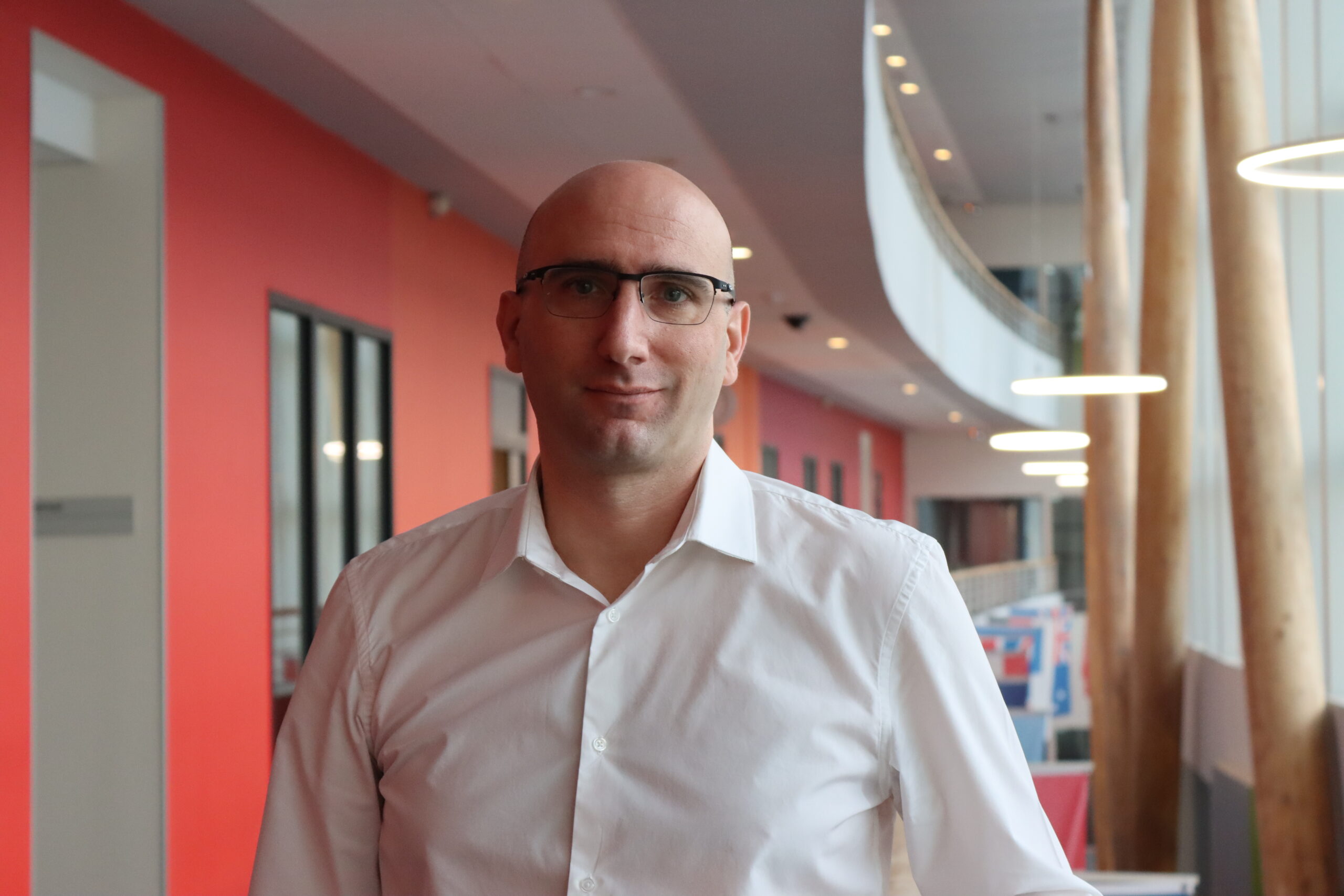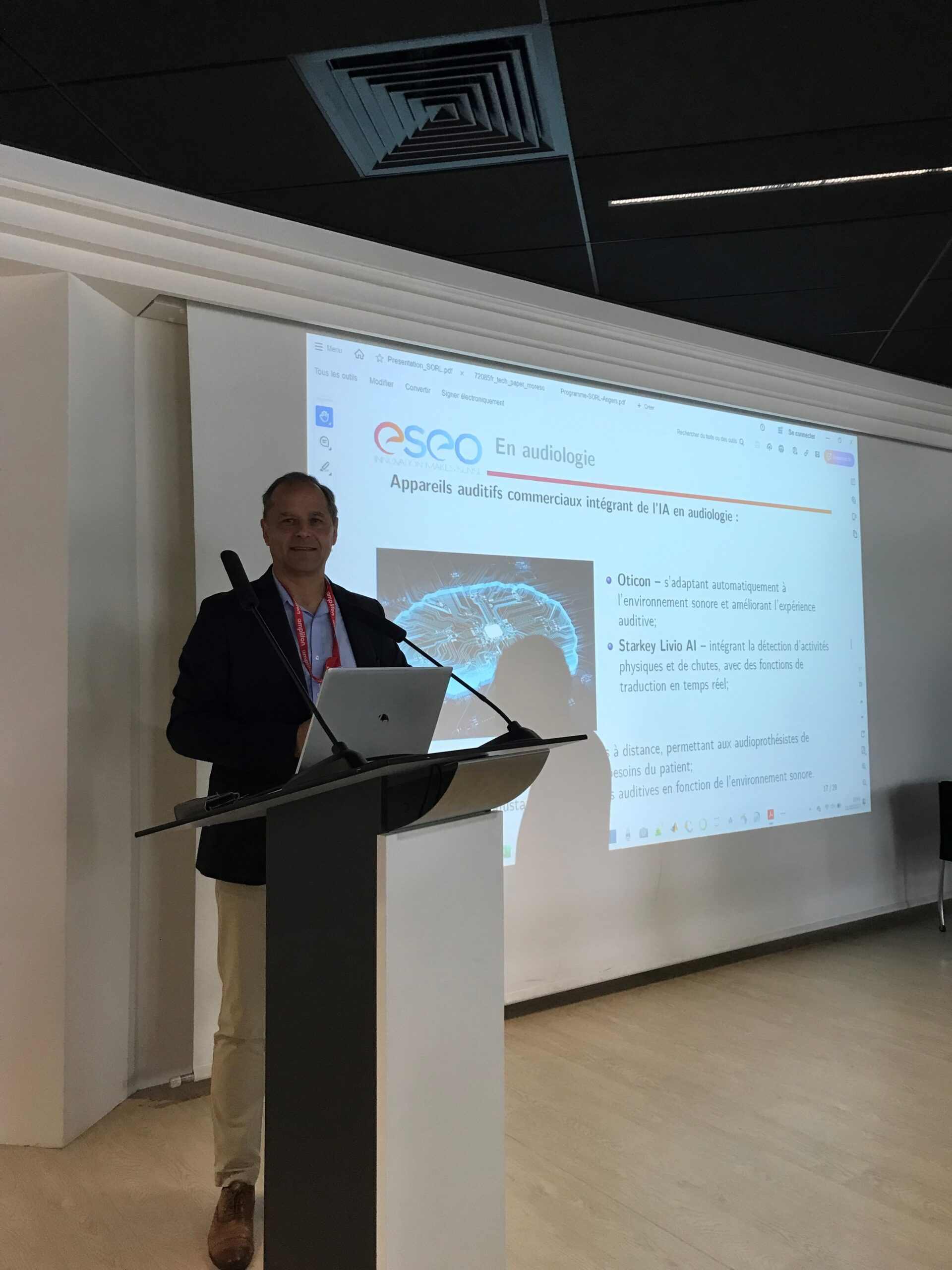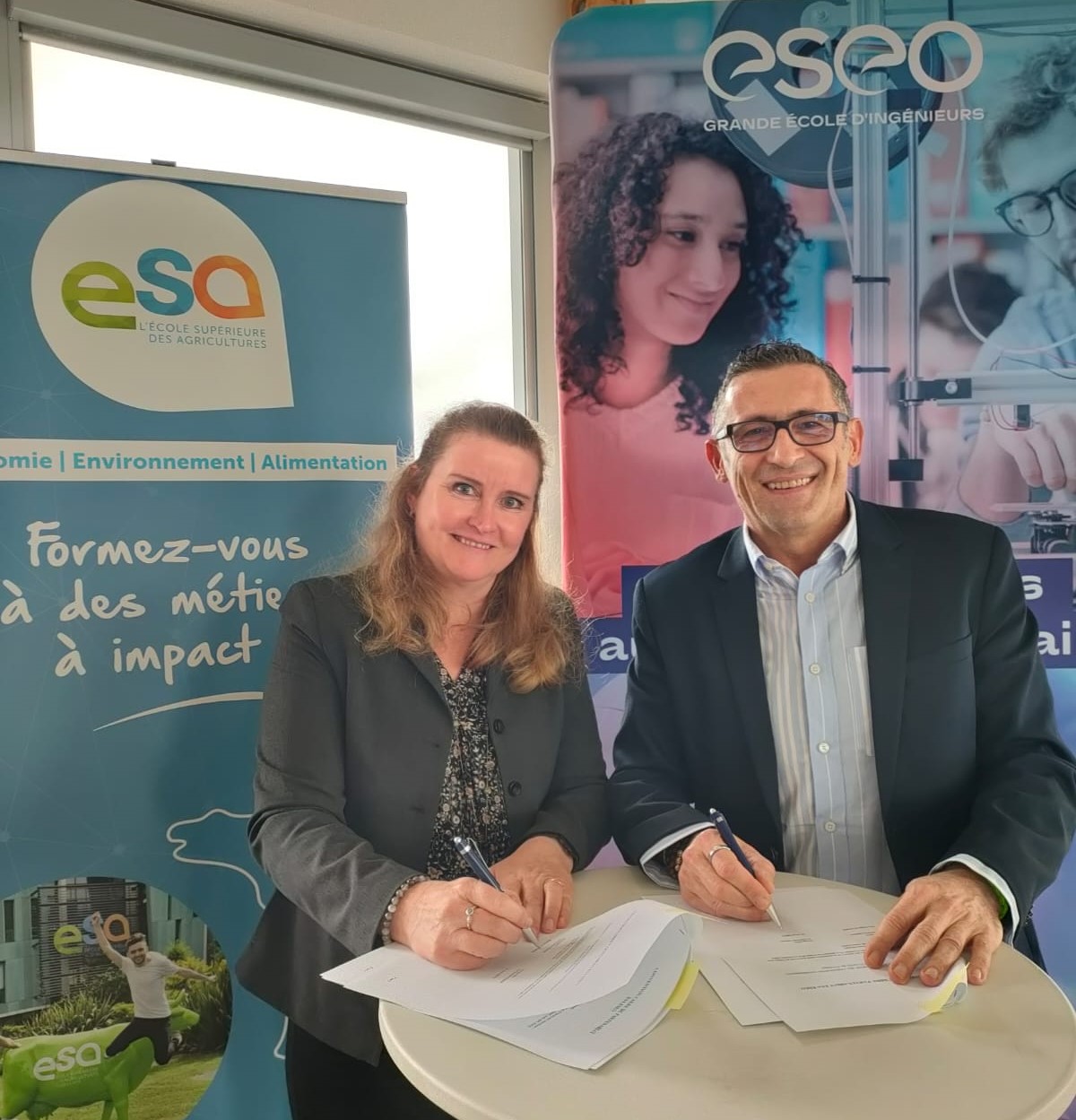Find out more about Sébastien Ménigot’s research!
On Friday 26 April, on our Angers campus, Sébastien MENIGOT, teacher-researcher and head of the engineering apprenticeship programme at ESEO, brilliantly validated his Habilitation to Supervise Research (HDR) entitled “Signal pre- and post-processing for ultrasound systems: from non-linear identification to optimal control for medical applications and non-destructive testing”.
The jury was made up of Régine Le Bouquin Jeannès (Professor, Université de Rennes), Hervé Liebgott (Professor, Université Claude Bernard Lyon I), Denis Kouamé (Professor, Université Toulouse III Paul Sabatier), all three rapporteurs; and Dominique Certon (Professor, Université de Tours), Jean-Marc Girault (Enseignant-chercheur, ESEO), Jean-Hugh Thomas (Professor, Le Mans Université), all three examiners.
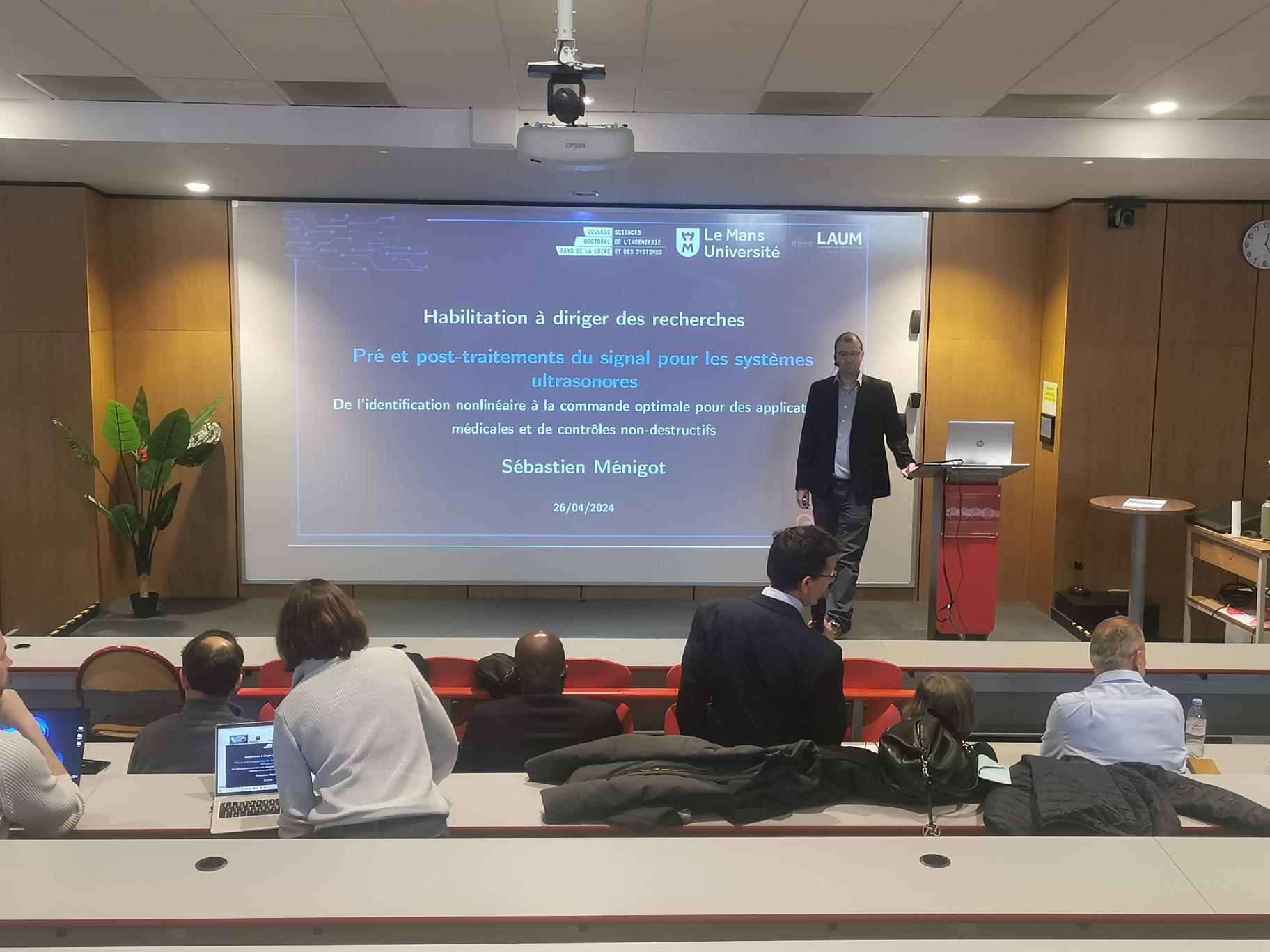
This research explores the frontiers of signal processing for ultrasound systems, with profound implications for medical diagnosis and industrial inspection.
“Today, ultrasound systems can be found in many fields, from biomedical to industrial applications. They enable early detection of diseases and defects in materials. To improve the quality of these systems (for example, through spatial resolution, contrast, signal-to-noise ratio, event detection), it is possible to act on one or more functions in the chain. This HDR proposes several approaches going back up the system chain: from post-processing to pre-processing.
Firstly, post-processing can naturally act on the system’s output signals. On the one hand, my contributions have focused on identification and modelling when the ultrasound system has non-linear characteristics. These developments enabled harmonic components to be extracted in an optimal manner. In addition, after these post-processings, it is possible to analyse the signal to make a pre-diagnosis. An example of such an analysis is applied here to the detection of cerebral micro-emboli. Adaptive algorithms have helped to detect the smallest of these.
Finally, it is also possible to add pre-processing. On the one hand, my contributions have enabled the development of parametric and stochastic optimal control, through iterative optimisation processes. These have been applied to both medical imaging and non-destructive testing of solids. Time reversal has also been extended to harmonic components.”
Congratulations to Sébastien Ménigot on the validation of his Habilitation to Supervise Research and on his brilliant career!
